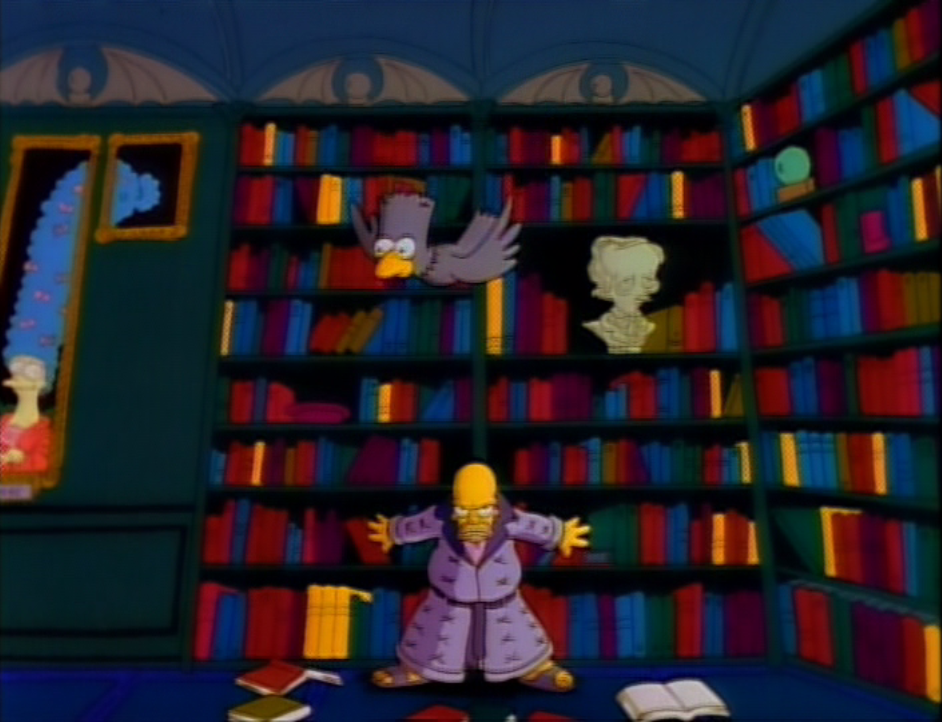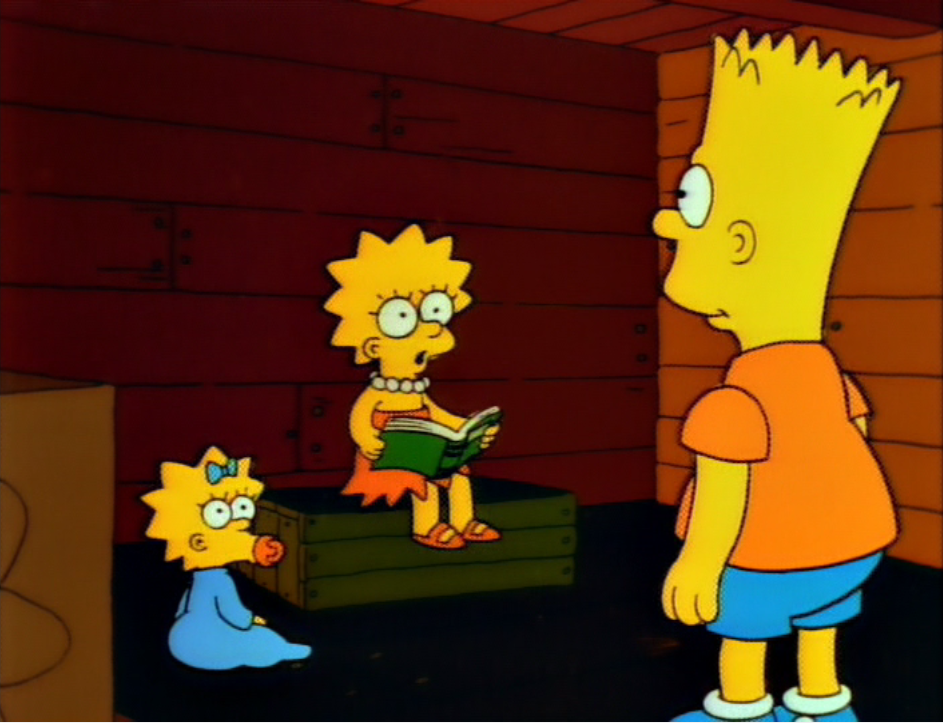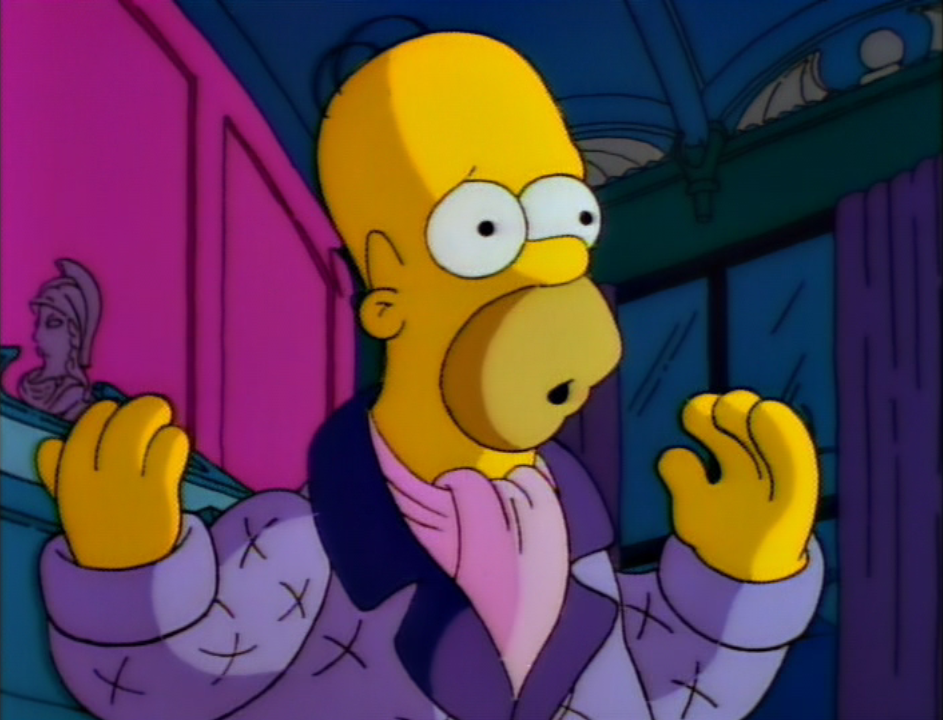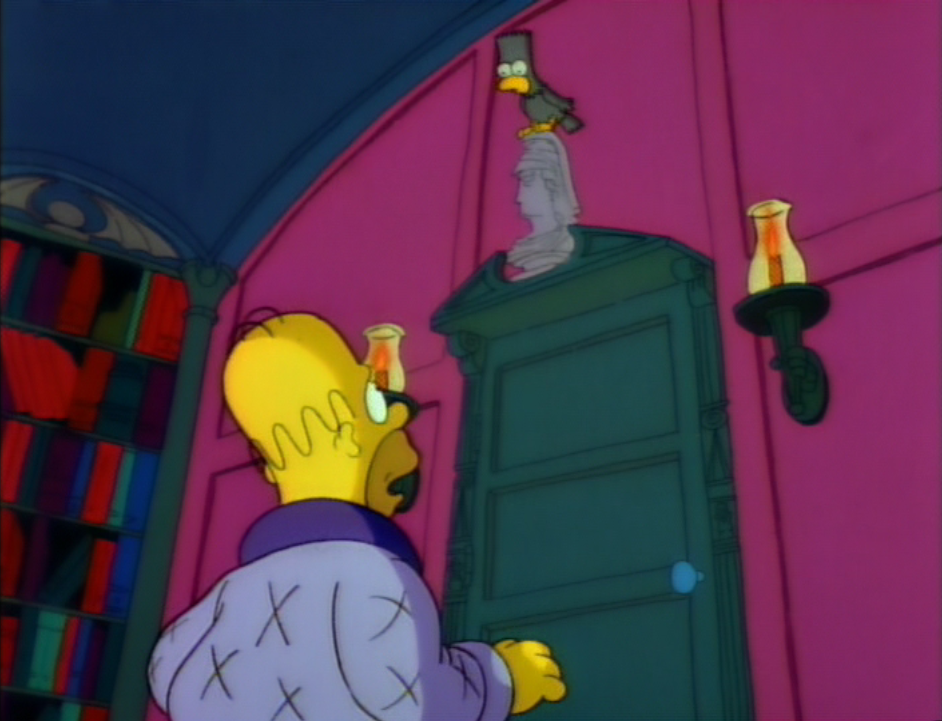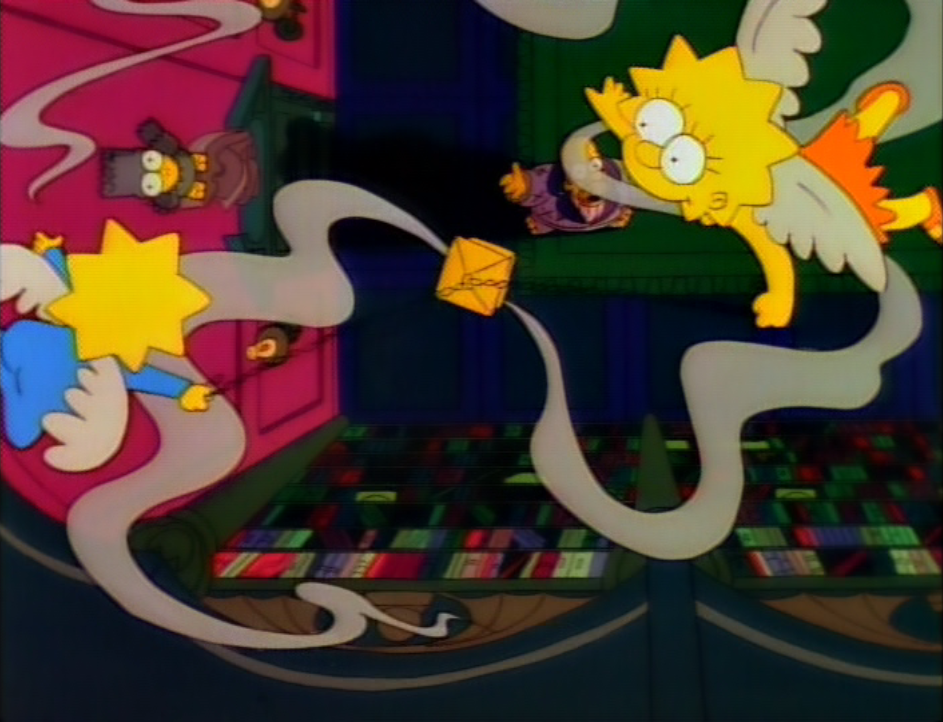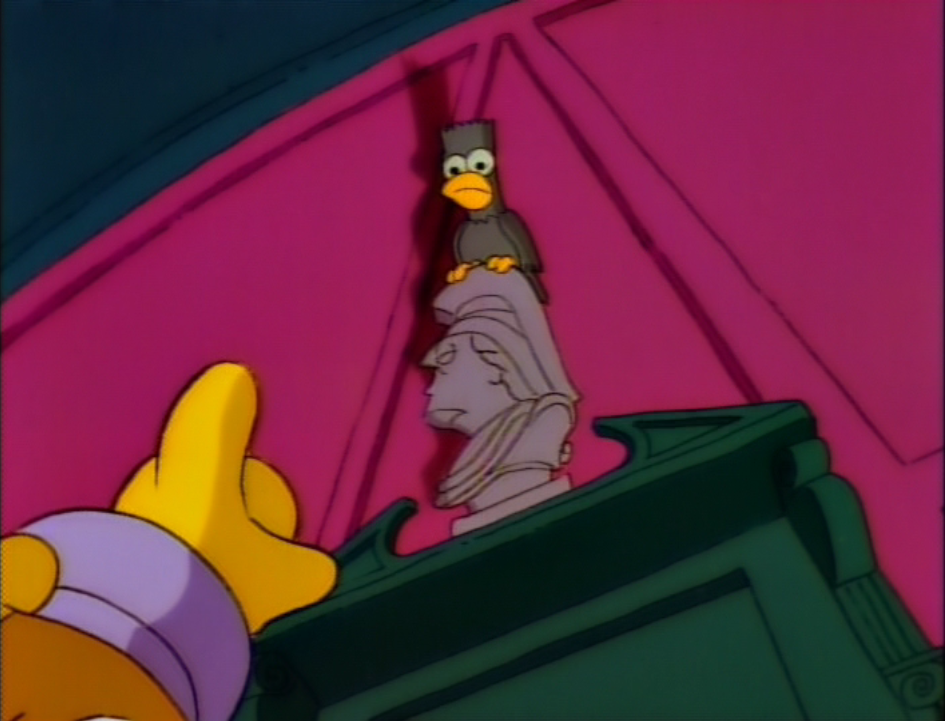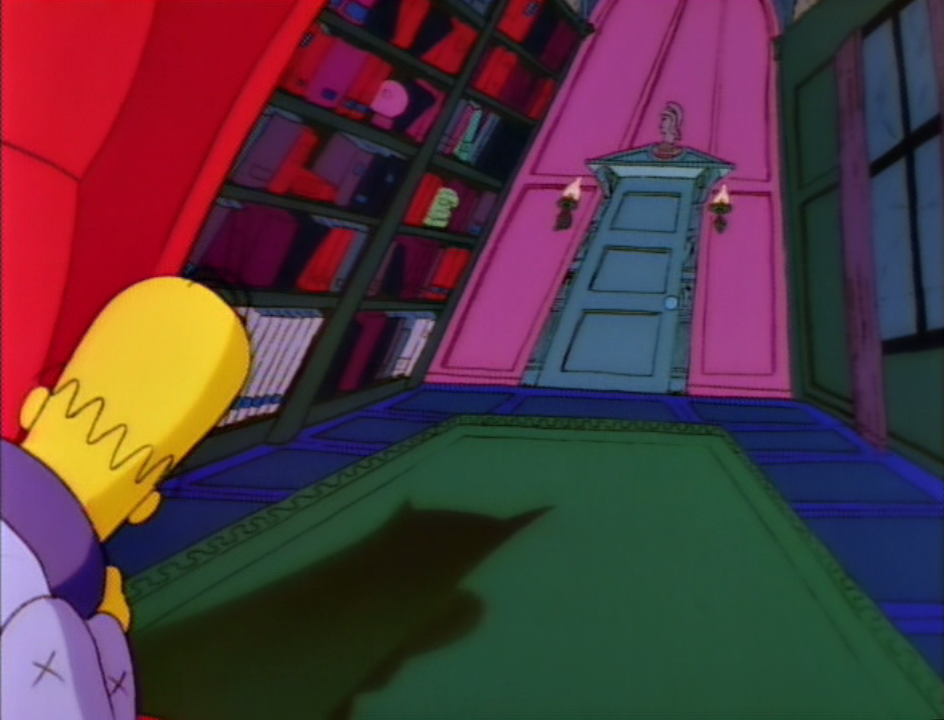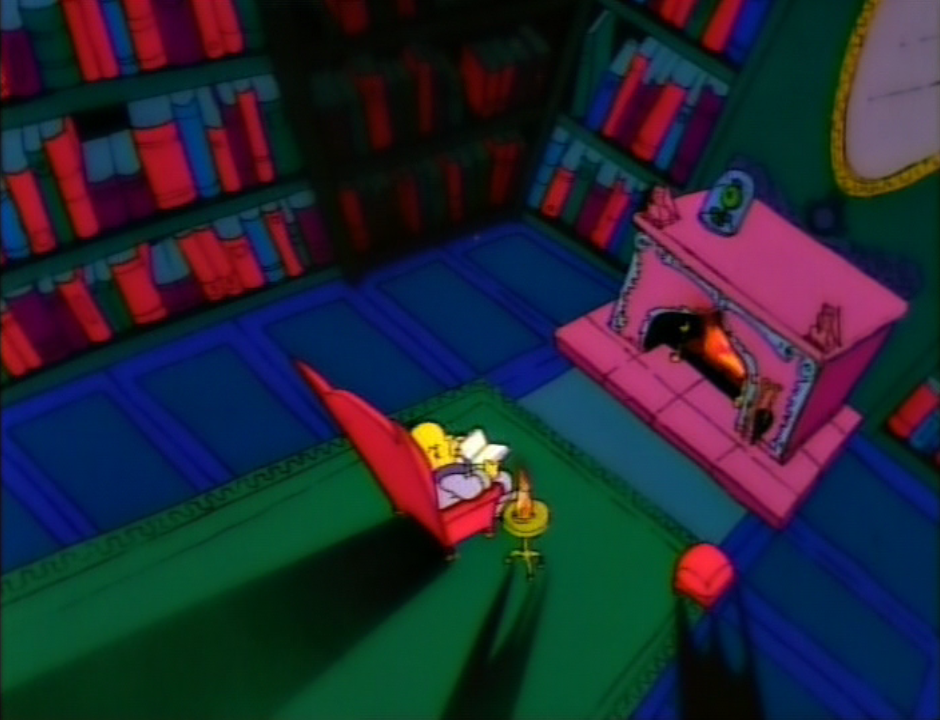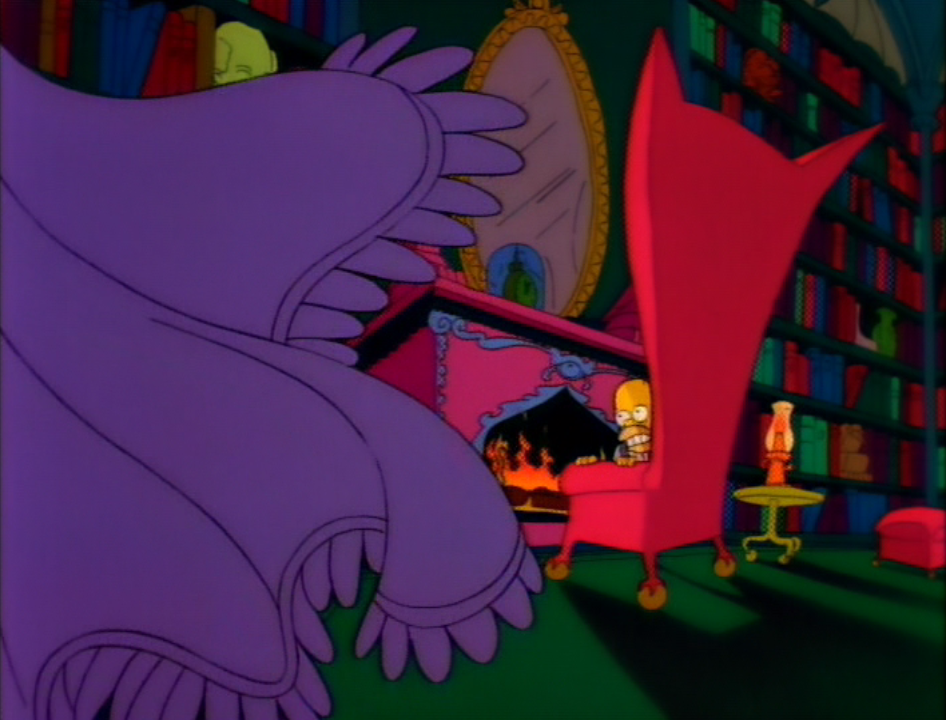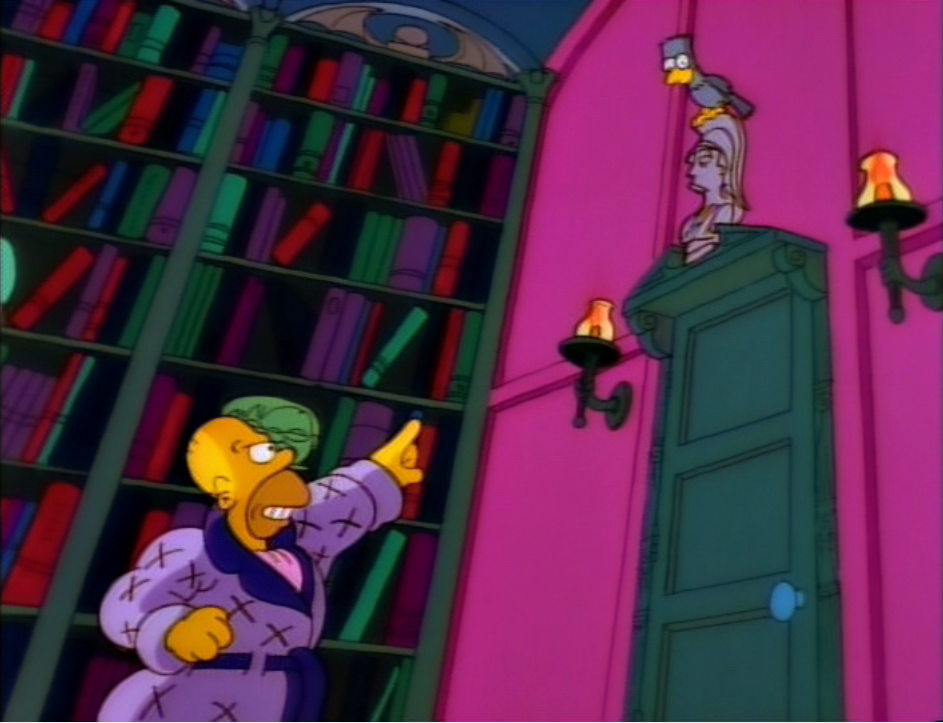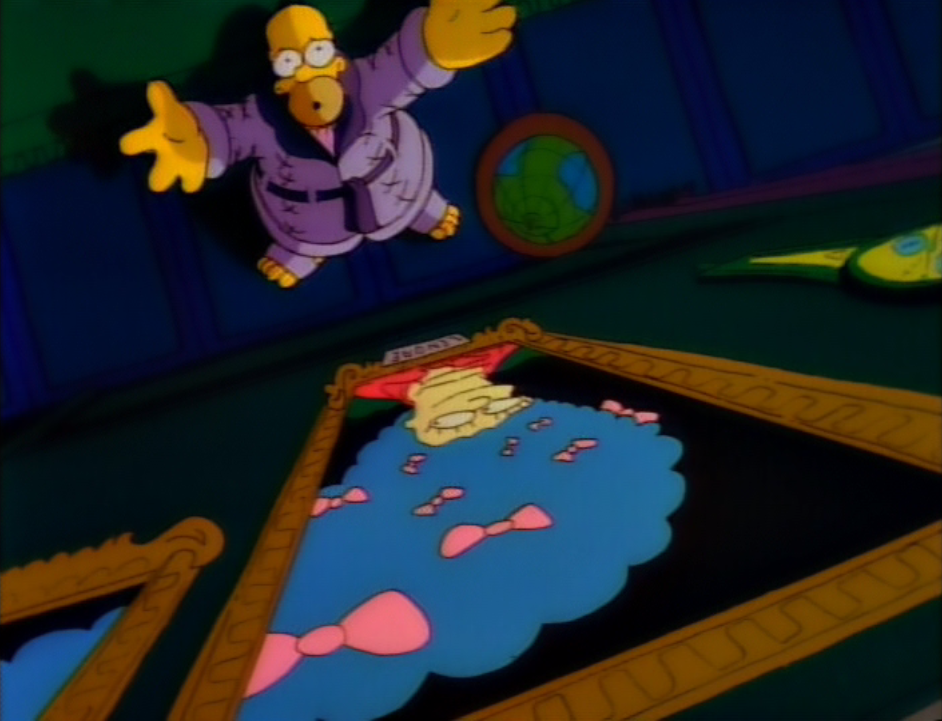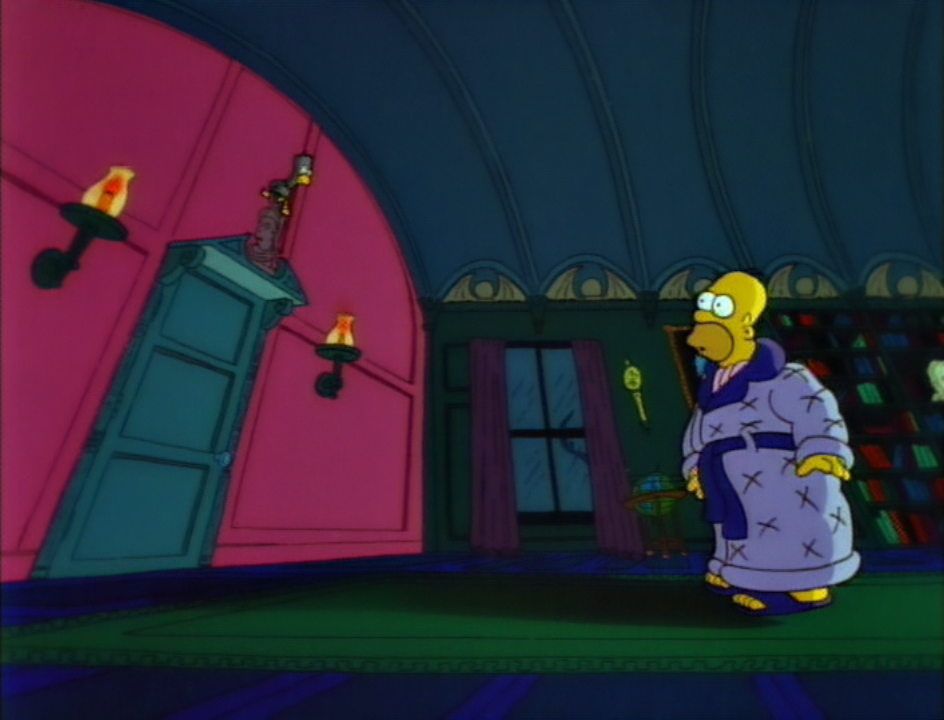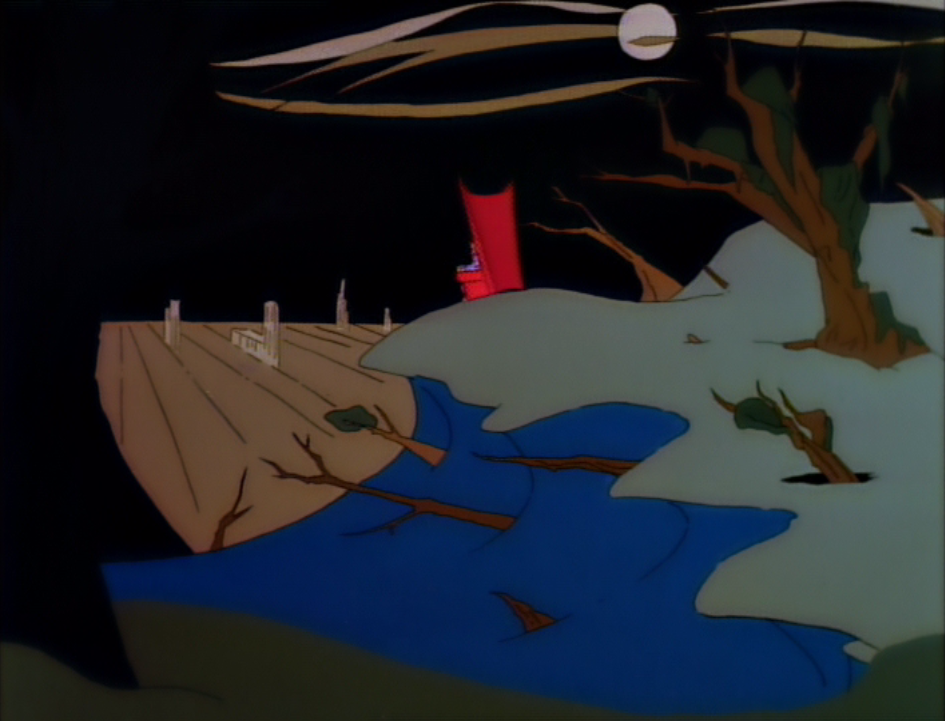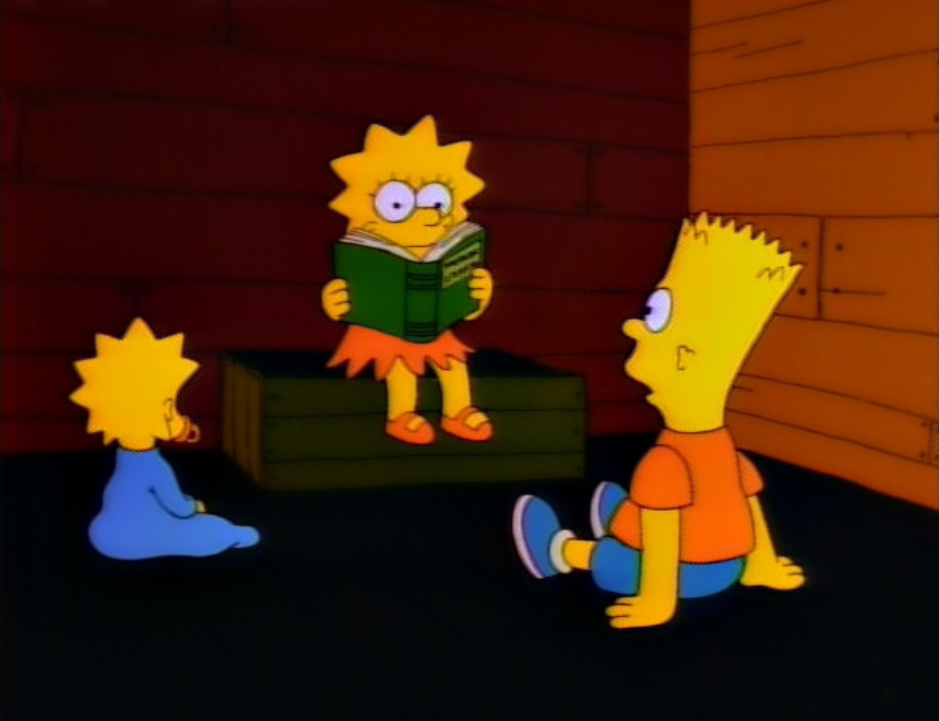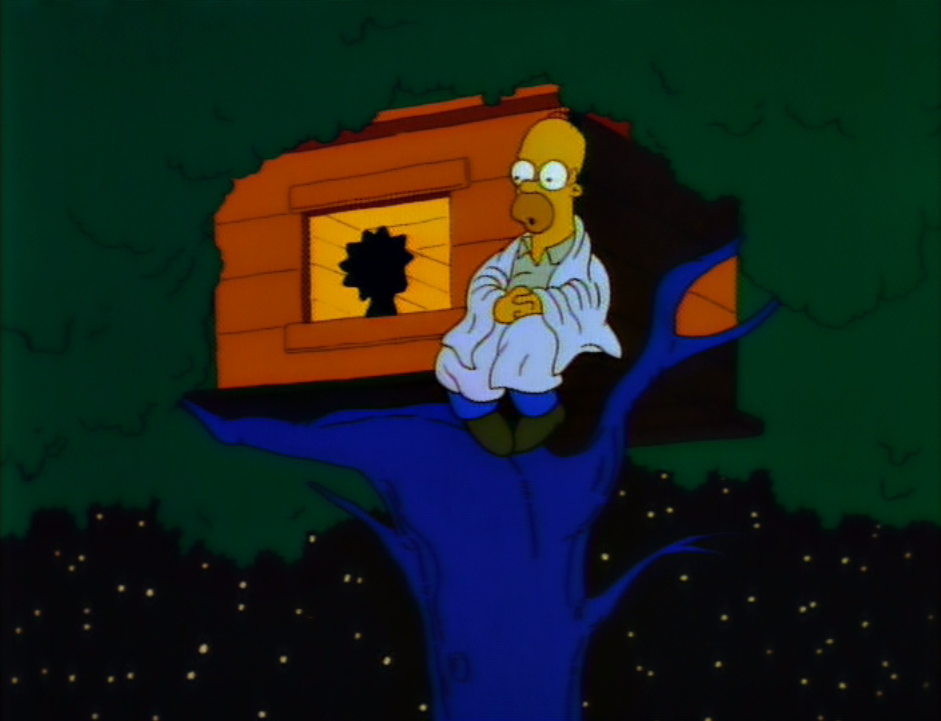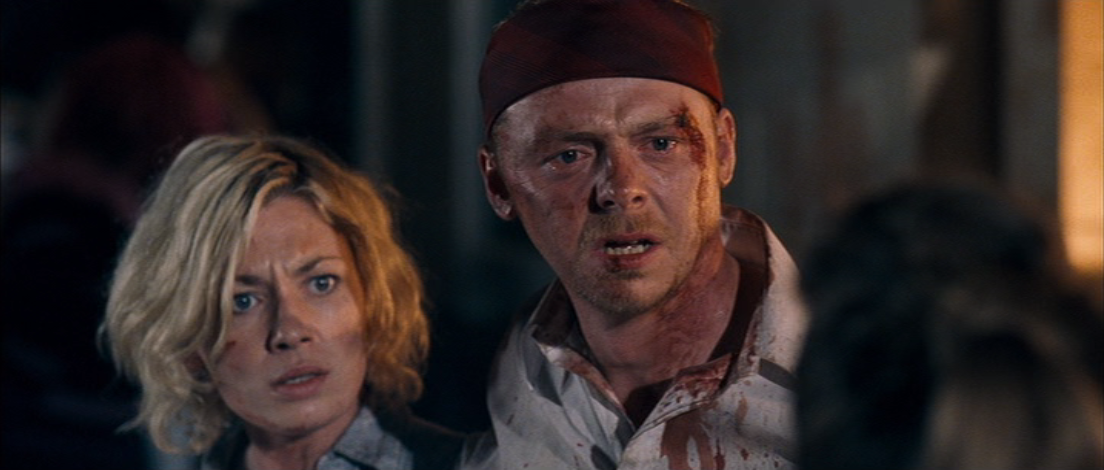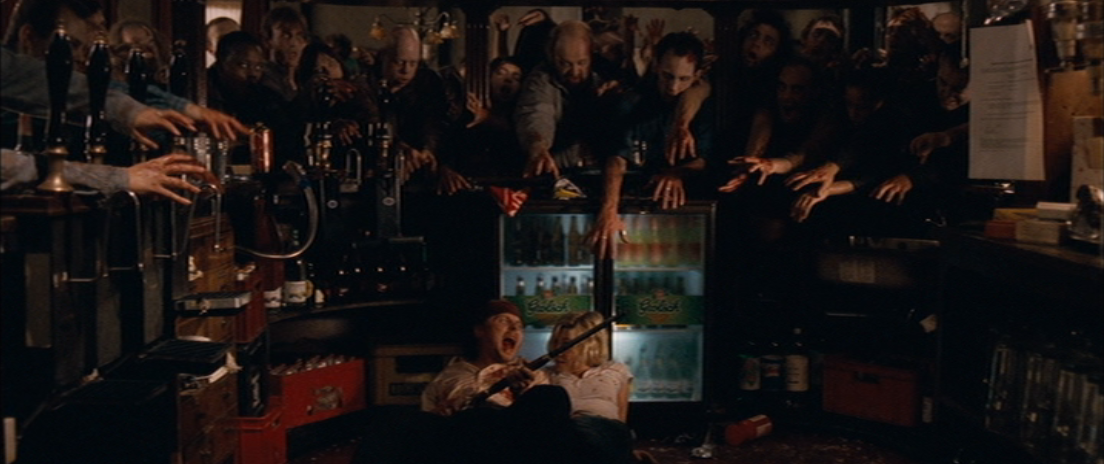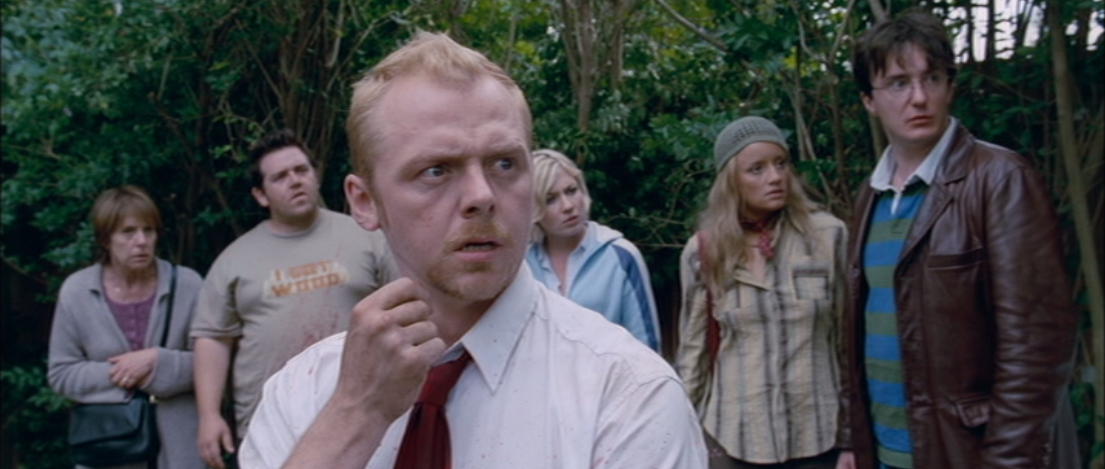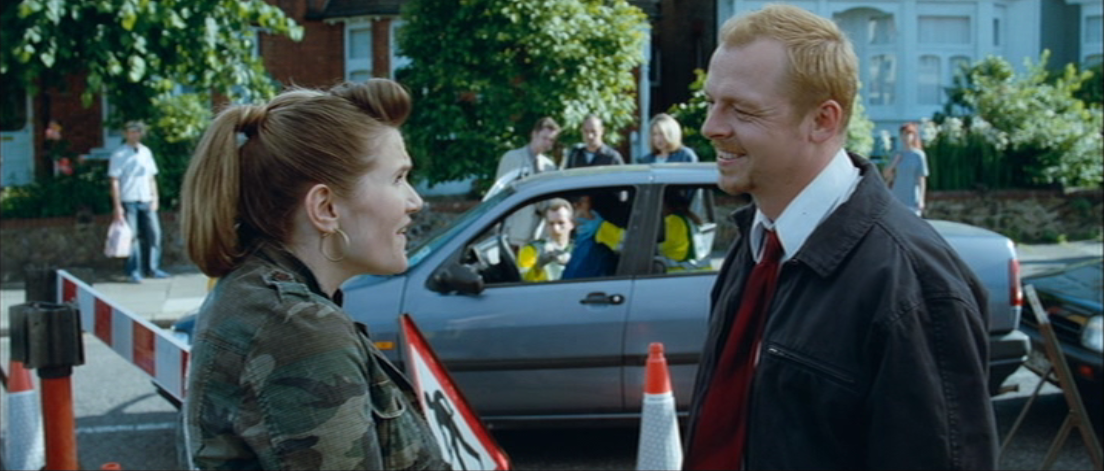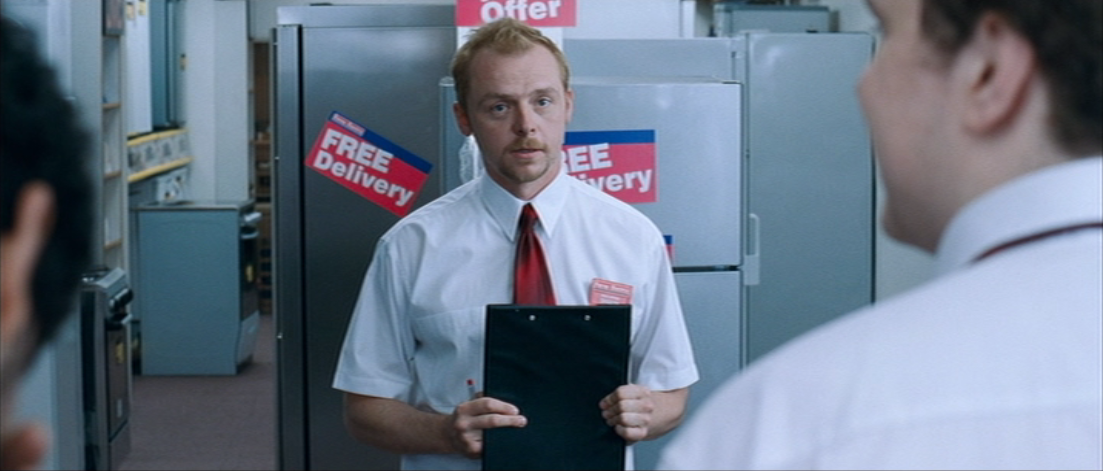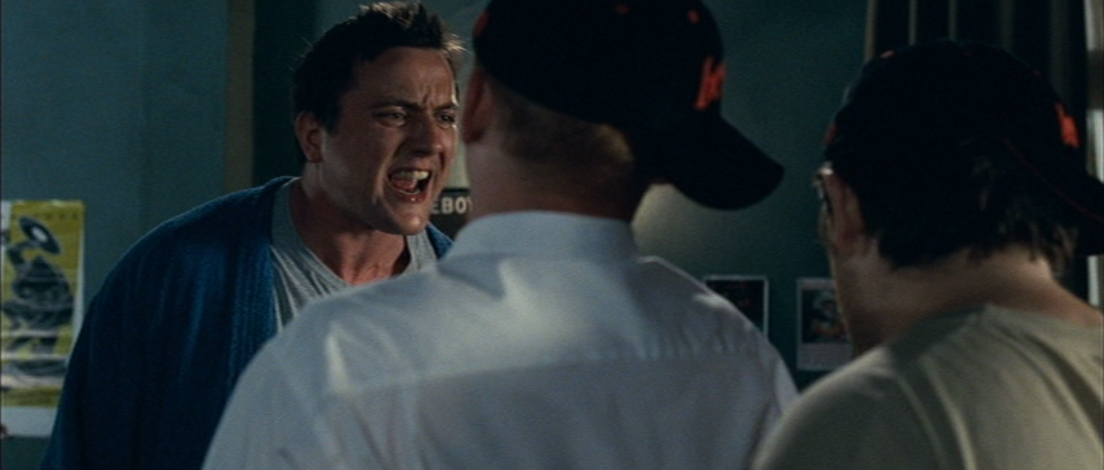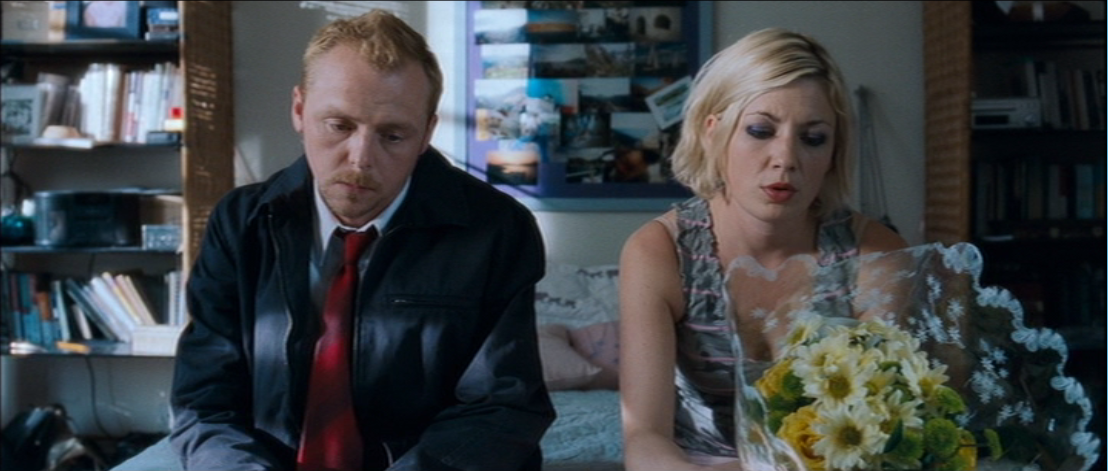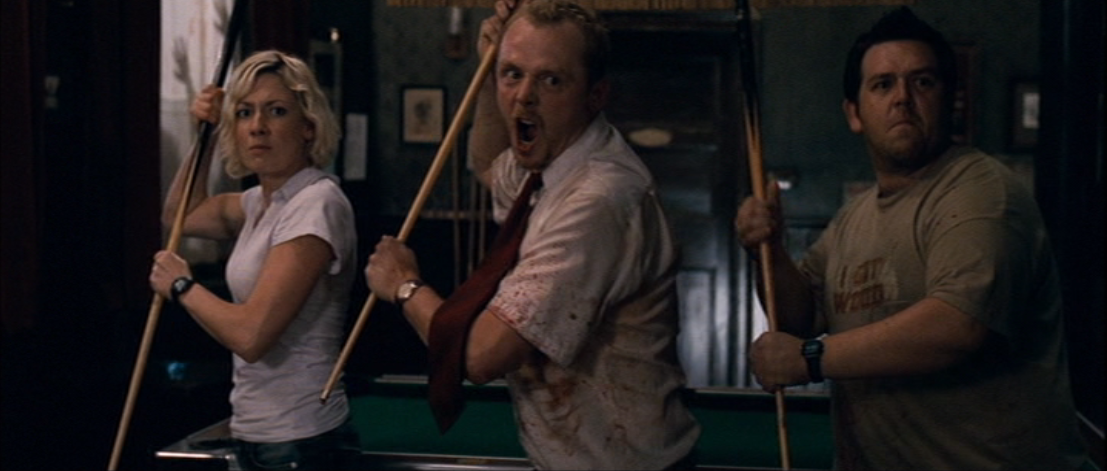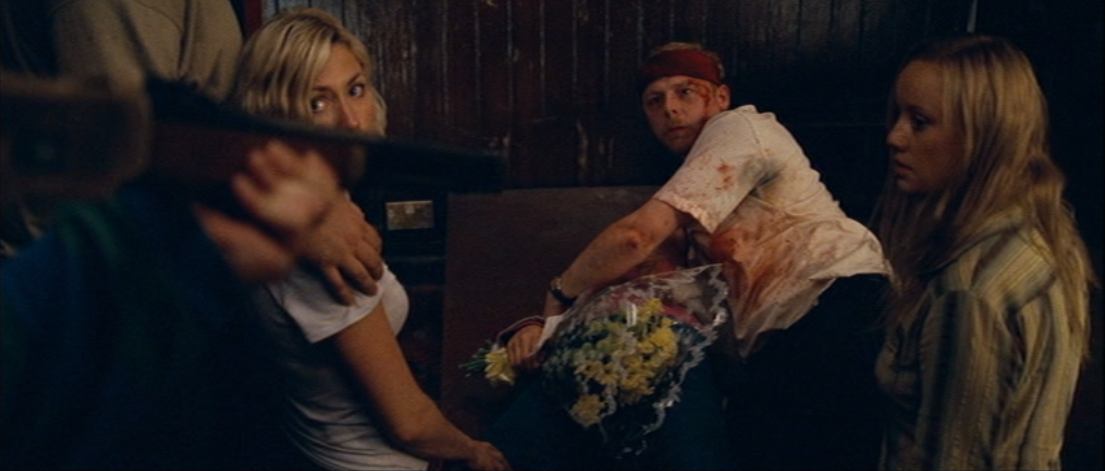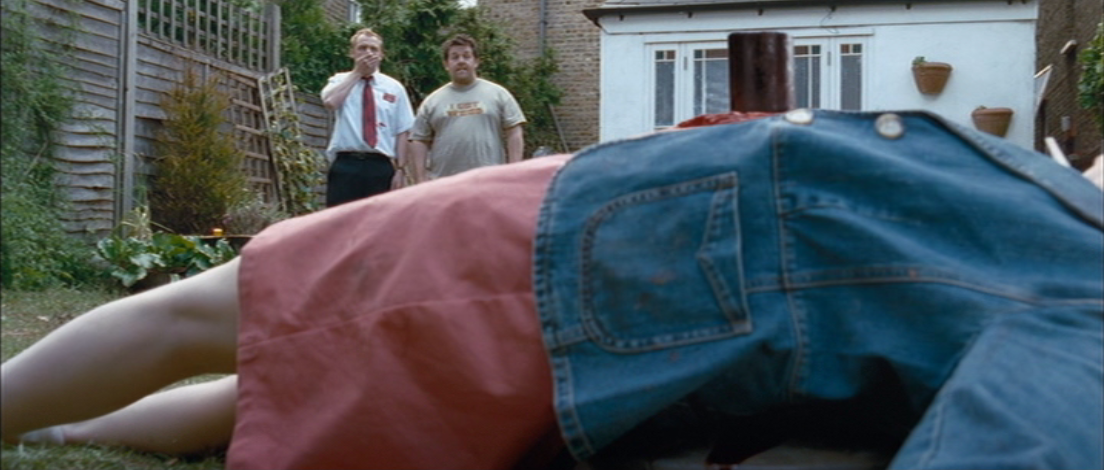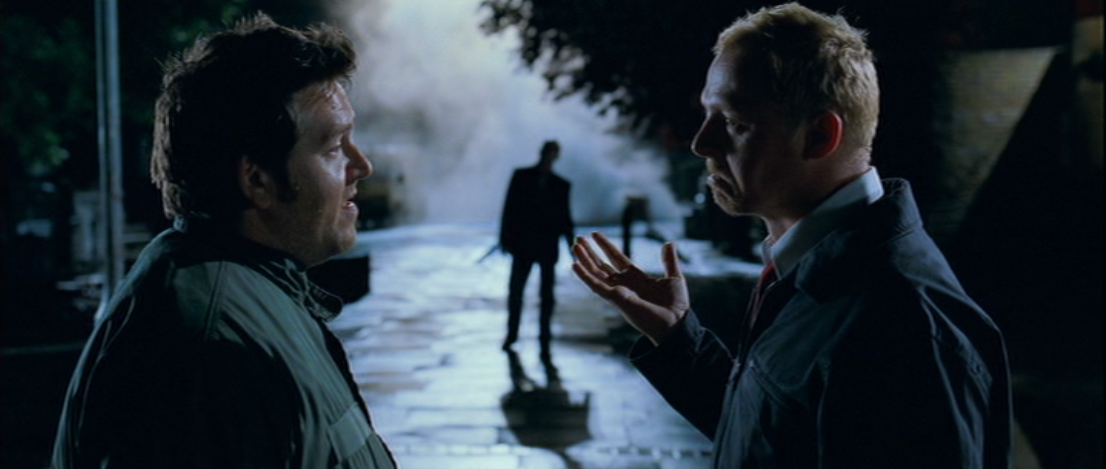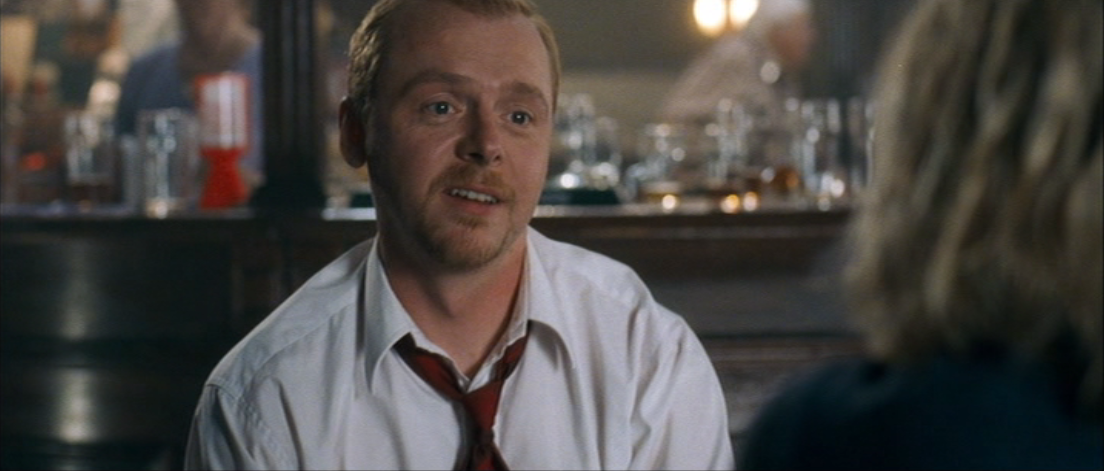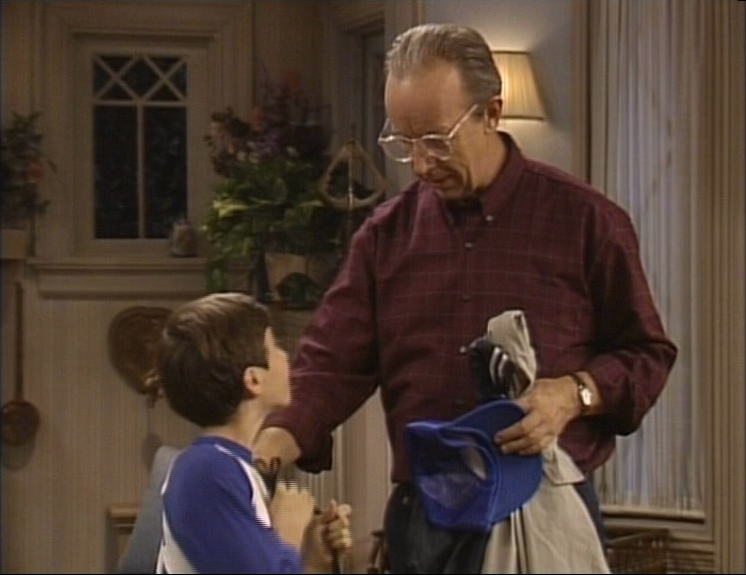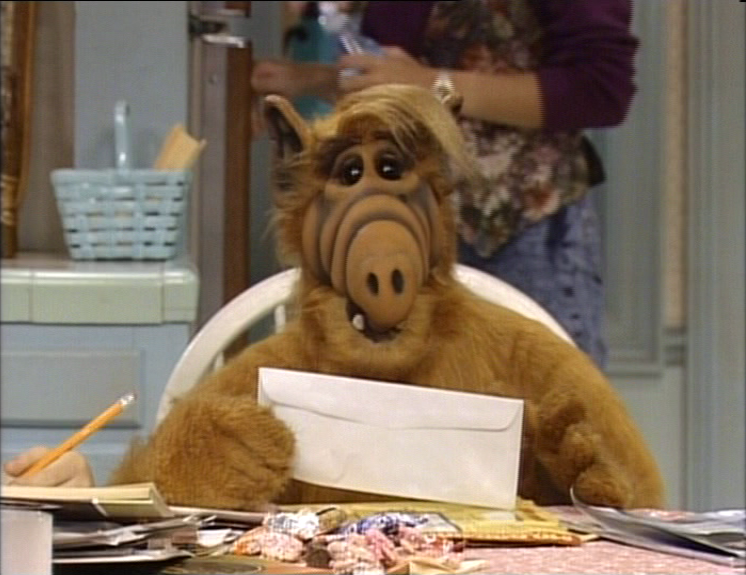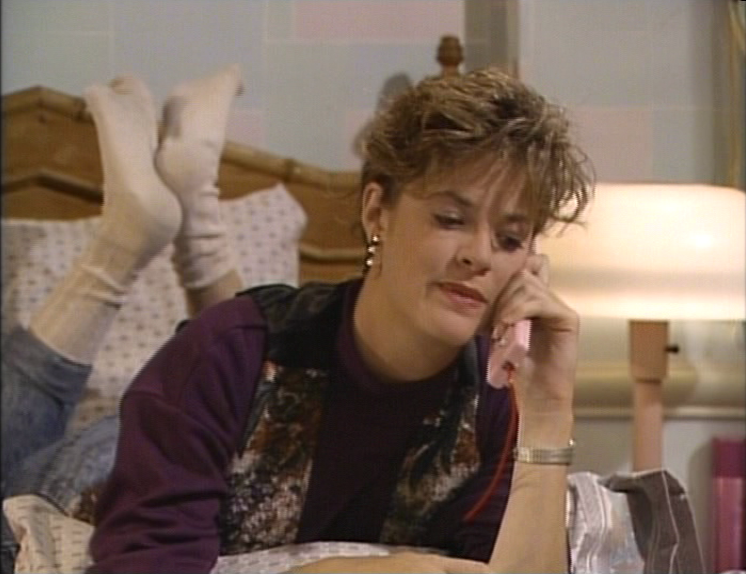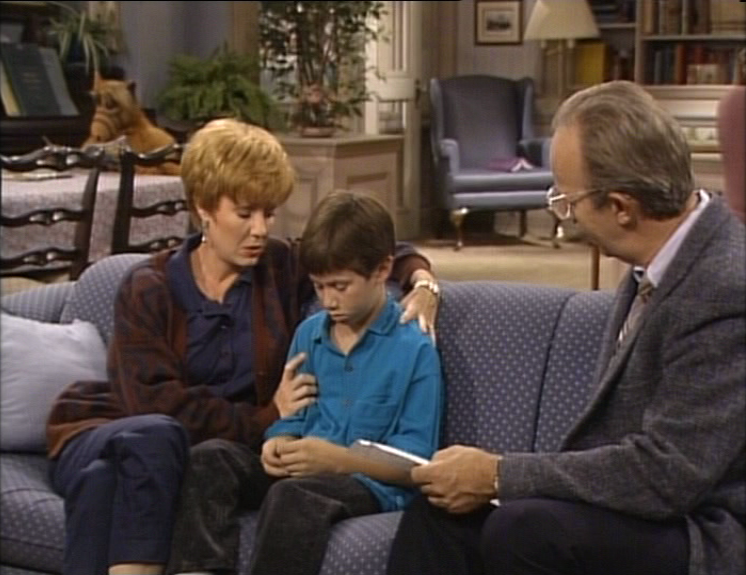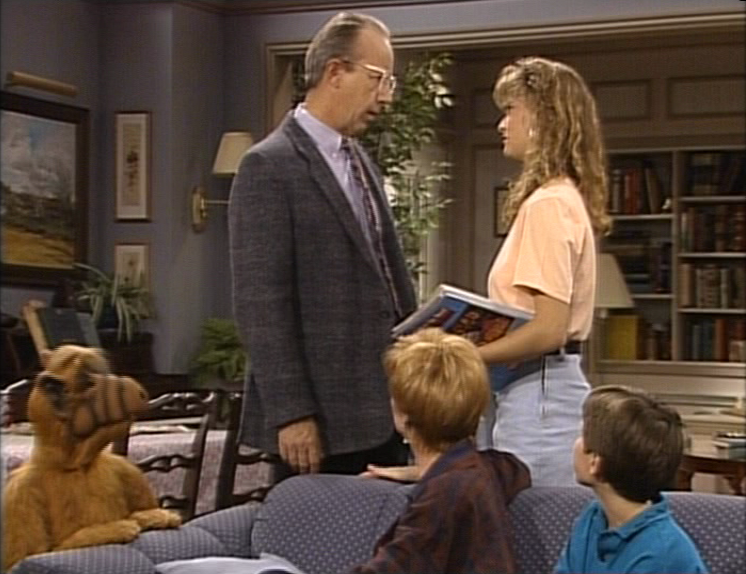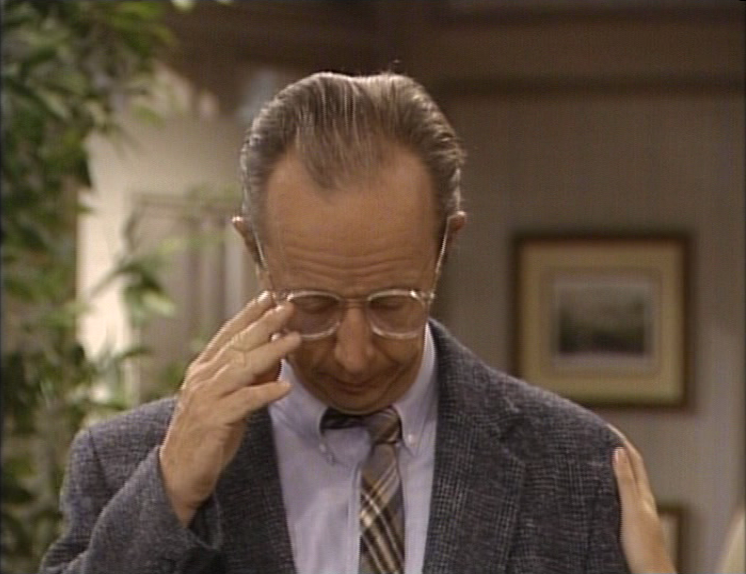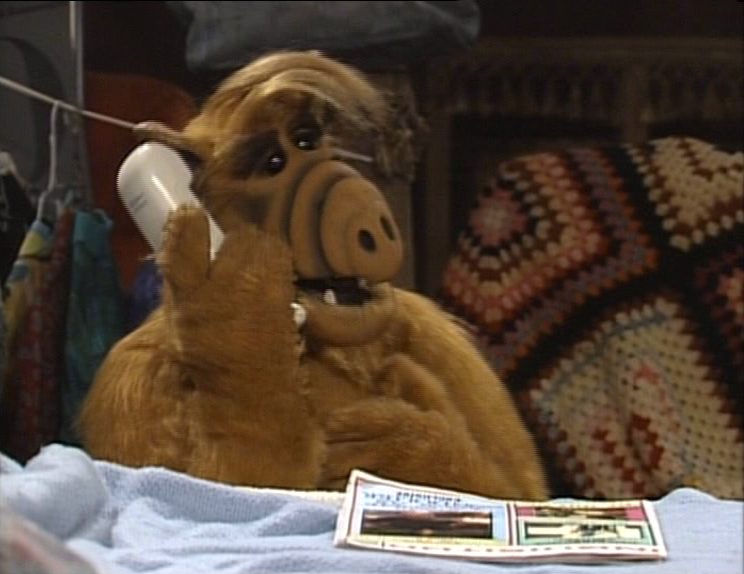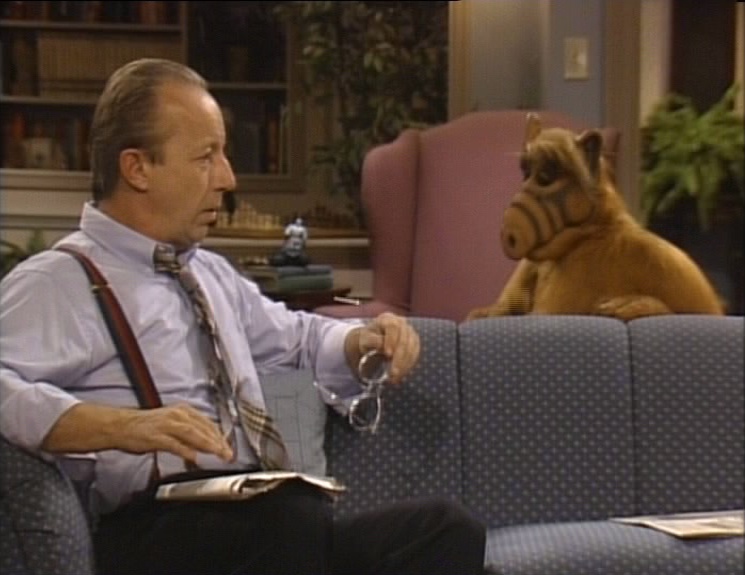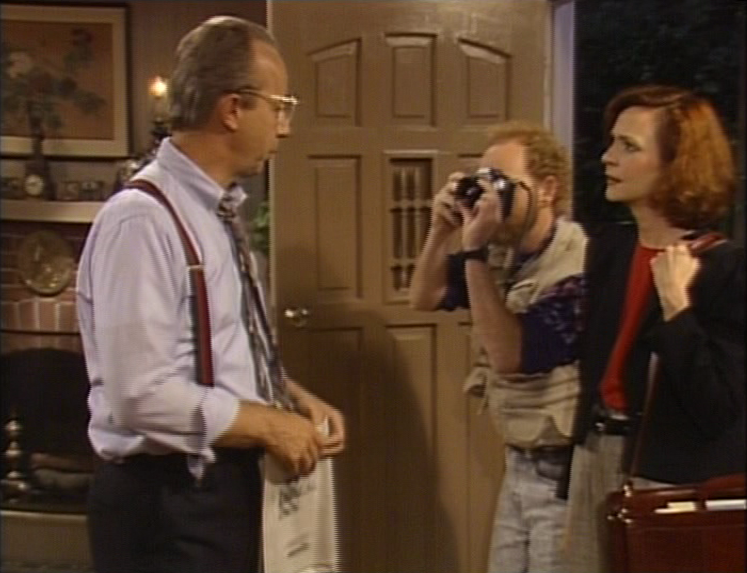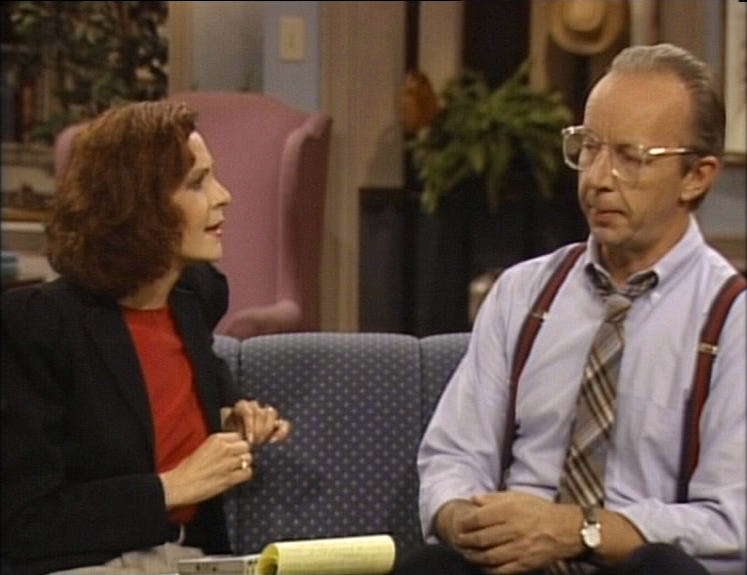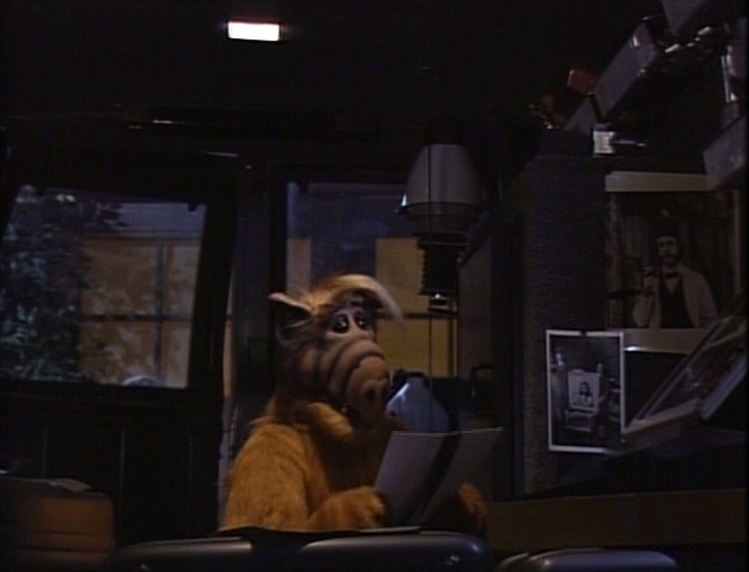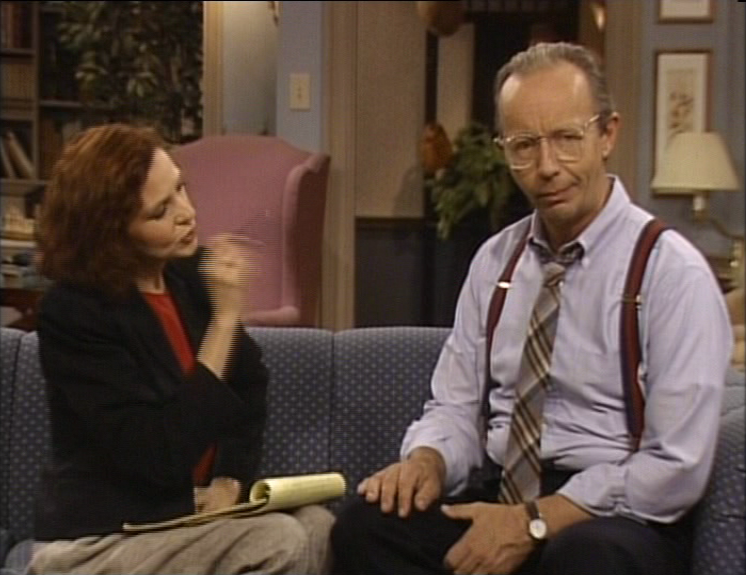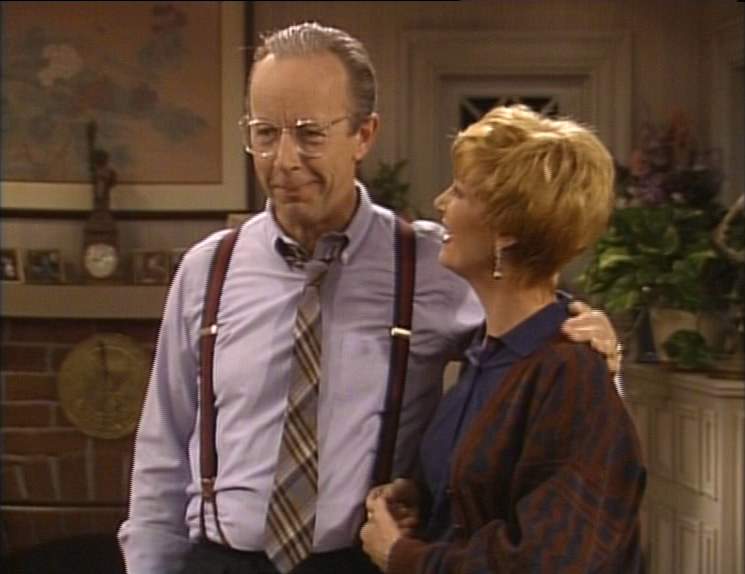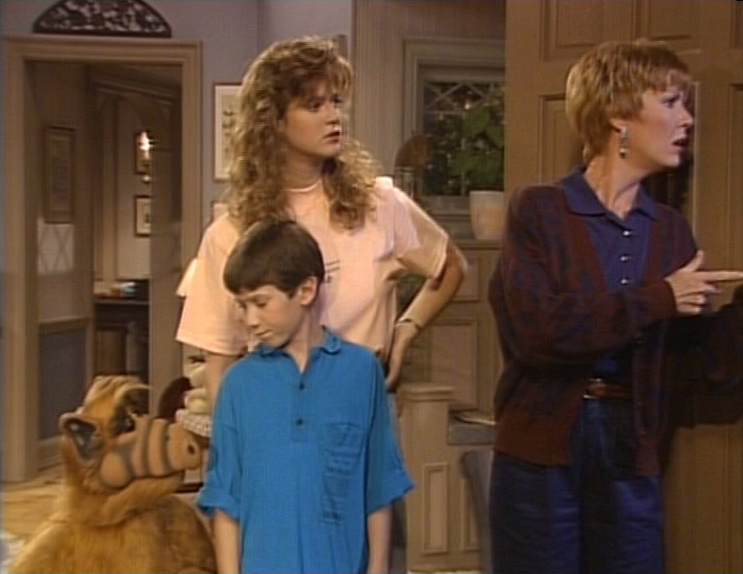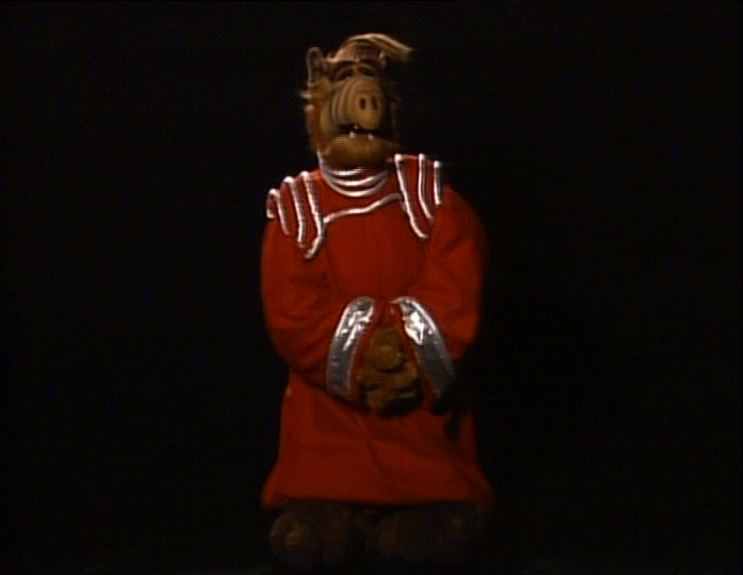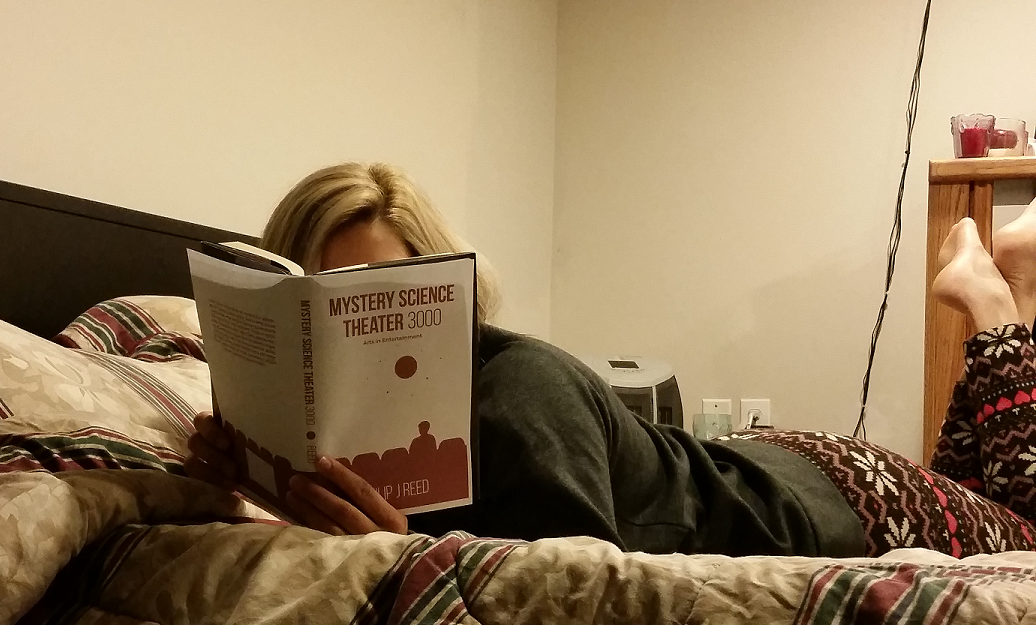Fiction into Film is a series devoted to page-to-screen adaptations. The process of translating prose to the visual medium is a tricky and only intermittently successful one, but even the fumbles provide a great platform for understanding stories, and why they affect us the way they do.
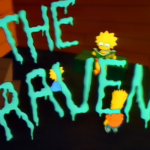 Am I breaking the rules by covering a TV show? In a word: no, because I make the rules. But in a few slightly more respectful words: maybe, but I think it raises an interesting discussion.
Am I breaking the rules by covering a TV show? In a word: no, because I make the rules. But in a few slightly more respectful words: maybe, but I think it raises an interesting discussion.
The mere fact that I’ve chosen to spotlight a segment of The Simpsons‘ first Halloween special should tell you that I think it’s as worthy of consideration as anything else I’ve covered here. Then again, the mere fact that I feel the need to open with an explanation says something about the comparatively smaller merit we assign to television.
Had The Raven — this version, this length, this exact cut — aired as a short film in theaters, there’d be no question. But instead it’s a segment of an episode of a long-running television show. A revered television show, but, hey, it’s still just TV.
And I find that interesting. To this day a made-for-TV movie gets less attention and respect than anything released to theaters, and while it’s easy to find examples of TV movies that are downright terrible (hello, Lifetime!), it’s really no less difficult to find terrible theatrical releases.
Yet theatrical films (tellingly, what everyone thinks of when they hear the word “movie”) get some baseline level of consideration that TV isn’t afforded.
Every so often you’ll hear Breaking Bad or Mad Men or some other piece of prestige TV get spoken of in reverent tones — often being openly compared to film, as though that is an inherent compliment — but they’re the exceptions. Bad films don’t tarnish the reputation of theatrical releases, but whenever a great TV show comes around its praise is couched in apology for all of the crap that surrounds it.
The Simpsons is probably the first example of a show that I remember being spoken of in those reverent tones. Perhaps if I were older that show would be M*A*S*H, but, as it stands, it was The Simpsons that I first saw reach out of the television and make the world pay attention.
Those who praised the show still did it apologetically — it was on FOX, after all, which was already known for carrying disreputable programming — but there was a level of seductive danger to it that made us see clearly that it wasn’t just “good for TV,” and wasn’t even just “good.” It was great, and however long it lasted (surely it couldn’t last long…) we’d be talking about it in 10 years, 20 years, 50 years, wondering how we were lucky enough to witness something of such undeniable cultural significance.
Those last two words there can’t be over-emphasized. Even if you dislike the show, its cultural significance is not up for debate. The Simpsons, even by the time of this episode, early in its second season, was everywhere.
Bart especially was on magazine covers, t-shirts, and shaved into the back of people’s haircuts. The show was a phenomenon of such significance that people felt the need to fight it. I remember the priest at my church warning families about it. I remember teachers hearing us talking about the show and saying that we were too young to watch things like that. Even President Bush (the much less horrible one) spoke out about how the show was rotting American minds.
The Simpsons wasn’t just some thing on TV that you either watched or you didn’t. It was a show that had power, which is why those in positions of authority were so keen to condemn it. Time deals with fads and fancies quickly enough…but power needs to be defeated.
“Treehouse of Horror” — which contains The Raven — was only the show’s 16th episode, but it was already event television. That’s why Marge, the show’s ethical center, needs to introduce it, and to warn us. She’s not quite out of character, but she’s definitely out of her element. She stands before a red curtain and implores us with seeming sincerity, before the opening credits even roll, not to let the children watch. This wasn’t part of the show…at least, not as far as I could tell. I knew Marge wasn’t real, but it also felt like she meant this.
I was a child watching. And I distinctly remember glancing around the room to see if my parents were going to switch the TV off. Or — horror of horrors! — make me go to bed while they kept watching. I recognize in Marge’s monologue now some dryly funny moments, but to a child this feels serious. It’s a cartoon mom, but it’s still a mom. And she’s warning you. If you go forward you’ll have no-one to blame but yourself.
This is scary, dangerous territory you’re about to enter, and you’re being warned not to do it. Clearly, that only made me want to do it more. And my parents stayed where they were. I wonder still if they were silently figuring out how quickly they could hustle me out of the room if things actually did get too scary or gory.
She ends her monologue with a defensive comment about angry letters — something the show had clearly received a lot of, and something which it would lampoon thoroughly a few episodes later with “Itchy & Scratchy & Marge” — and that’s it. You’ve been warned. You made your own decision.
You’re on your own, kids.
For those who feared the power of The Simpsons, this must have been a true Halloween nightmare spilling into the real world. This show that was already so dangerous — so (for the time) violent, profane, distrusting, and disrespectful — was telling you outright that you’re about to watch the most dangerous fucking thing that could ever possibly be aired on television.
If The Simpsons itself was warning you…what in the world was it going to show kids? What godless stretch of carnage and brutality could ever be in store? What in hell are teachers going to have to put up with the next day in school?
Well, if they were good teachers, they’d be delighted, because their students were about to be exposed to an unforgettable blast of classic American literature.
The Simpsons version of The Raven is a true adaptation. It’s not a parody, though there are jokes in it, and it’s far too comprehensive to be an homage. It’s an adaptation, and that’s why it belongs here. For its trueness to its subject, and also for its sheer novelty. After all, how many shows do you know of that actually did straight adaptations?
Typically when a TV show would mine literature for ideas it would result in something like the endless versions of A Christmas Carol that sitcom characters have endured over the years. The central conceit is there, a few necessarily plot beats are struck, and that’s it. It’s not an adaptation so much as it is the borrowing of a framework. Characters from one universe live out — temporarily — the barest sketch of events from another, and the next week we forget it completely.
Other times you’ll have a more general genre pastiche, such as the war fiction sendup that is Spaced‘s paintball episode, or the noir tinge of The Venture Bros.‘ “Everybody Comes to Hank’s.”
In none of these cases are we dealing with true adaptation. Instead we’re borrowing (or winking toward) recognizable elements.
And that makes sense; airtime is valuable. 30 minutes of somebody’s attention had better be worth it, or they’ll change the channel. That’s why shows undercut or play loose with the material they do borrow. You can tune in to Gilligan’s Island and see the castaways staging a musical version of Hamlet, but you won’t ever see the cast do a straight recreation of The Tempest from Shakespeare’s original script. (However appropriate that might have been.)
And yet The Simpsons does a straight adaptation here, and though they’ve done a new “Treehouse of Horror” special every year since, and have regularly mined the works of others in order to do so, this is the only time they haven’t undercut the original. It’s the only time they presented — rather than parodied — the actual substance of the source material.
And it’s still one of the best things the show’s ever done.
The oddness of getting a straight literary adaptation embedded in The Simpsons is definitely noteworthy. Looney Tunes beat this show well to the literary parody punch with its own animated takes on classic stories (Robinson Crusoe, The Strange Case of Dr. Jekyll and Mr. Hyde, and Of Mice and Men all spring instantly to mind), but, again, those weren’t adaptations. Aside from anthology series like The Twilight Zone or Masterpiece Theater, in which every episode was a one-off case, straight adaptation simply didn’t happen.
But here was a show that wasn’t afraid of turning its runtime — and its audience’s attention — over to a work of poetry that had been written a century and a half earlier. What did The Simpsons do when it held the youth of America rapt? It did what Lisa does here: it pulled out a schoolbook, and it read to them.
And that’s why The Simpsons was so dangerous: it wanted its audience to think.
It was unconventional TV, but not in the way it was accused of being. It’s not that it contained adult content so much as the fact that it wanted viewers to think for themselves. Its most dangerous idea wasn’t “there is no God” or “don’t trust your leaders.” It was this: we trust you to think for yourself.
It wasn’t an assault on Christian values; it was an assault on intellectual laziness.
That’s what made the show so many powerful enemies.
I’m probably doing the segment a disservice by calling it a straight adaptation. It is, but it’s more than that. It’s thoroughly Edgar Allan Poe’s work, but it’s just as thoroughly The Simpsons.
The latter’s stamp, necessarily, is all over it. The Simpsons had a clear visual style and The Raven must, of course, be filtered through that. Additionally, the voice cast are too recognizable to overlook, with Dan Castellaneta getting a well-earned and well-handled spotlight. (His dual delivery of “Take thy beak from out my heart, and take thy form from off my door!” — first in theatrical anger and then in seething frustration — is particularly brilliant.)
But aside from a few cameos and background gags (Forgotten Lore, Vol. II is my easy favorite), the universe we occupy isn’t that of The Simpsons, or even some fantasy variant of The Simpsons. It’s the universe of Poe…the confined, claustrophobic, oppressive, inescapable universe of Poe. No, the Simpsons‘ stamp isn’t the bleeding-through of the show’s comic sensibilities, but of its artistic ones.
David Silverman, who is probably more responsible for the visual direction of the show than anyone else (he honed its style way back when it was a series of skits on The Tracey Ullman Show), had the unenviable task of entertaining children who tuned in to watch their favorite cartoon and found themselves sitting through a poetry recital. It was a no-win proposition that he easily, unquestionably won.
Silverman directed The Raven, and the fact that he could focus on only his five-or-so minute segment meant he could devote more of his attention to making it visually and artistically inventive…an opportunity he clearly took to heart.
The Raven represents the most impressive animation the show had seen yet, and it’s clear that a great deal of time was spent arranging the scene, blocking the shots, and finding interesting angles from which to watch the story unfold.
Poe’s original poem — yes, poem, but I’d argue it’s just as much fiction as any prose I’ve read — takes place in a single environment. One room. A door is opened, a window is opened, but our protagonist never leaves. There are strong thematic reasons for that, but it’s the kind of thing you can more easily make interesting on the page, where you can spend time in your protagonist’s mind, than you can on screen, where viewers (especially those tuning in to watch a 90s cartoon show) expect visual variety.
Silverman’s environment is a drab and sad room. Deliberately so. Volumes of books line the wall. Atmosphere is thick but decoration is sparse. There’s a fireplace, a chair, and a bust of Pallas. Visually, it’s hard to imagine anything less exciting, and that’s by design. Poe’s source material isn’t the story of external adventure; it’s a dark meditation on inner emptiness. Our unnamed protagonist spends a lonely, torturous night with his memories of “this lost Lenore.” His solitude turns to madness, and that madness ravages him further. He is his own victim in an endless, unbreakable cycle of abusive despair.
So empty is his life that when he hears a tapping, a rapping at his chamber door, he ignores it. “’Tis some visitor,” he mutters, “tapping at my chamber door. Only this and nothing more.” He waits, quietly, for the visitor to leave.
Who is it? He doesn’t care. He’s not interested in company. He waits it out, or attempts to, and only gives in to answering the door when it’s clear that the visitor won’t go away. And so our protagonist spins a limp apology about having been asleep, while we know he was instead hoping that he wouldn’t have to face another human being.
That much of his wish is granted, because, when he opens the door, there is nobody waiting. If he’s relieved he won’t be for long; he’ll receive another kind of visitor soon enough.
And that’s the visual premise of the story. A man is in a room and doesn’t wish to speak with anyone. Making that compelling television seems difficult at best, but Silverman was up to the challenge, all while staying true to Poe’s dreary, lonesome setting, and at no point betraying it.
As we see with the very loose interpretation of The Twilight Zone‘s “To Serve Man” that precedes The Raven — and as we’ll see in every “Treehouse of Horror” to follow — the show is willing to be pliant with its source material. It can take a small, simple story and expand upon it to create something larger, with a more universal impact, for the sake of including more characters or visual and comic variety. A perfect example of this is the “Monkey’s Paw” send-up that they’d do the following year; the original story took place between two characters in their home, whereas The Simpsons ignored those limitations and expanded the premise immensely.
The show’s adherence to the original’s confined setting is a self-imposed challenge. The Raven could have been anything; it’s an adaptation, after all. The only rules are the ones set by those adapting it.
Instead, Silverman and writer Sam Simon (credited alongside Poe) lock themselves in the same room that drove our protagonist insane. Why? Because they believed they could do something incredible with that limitation.
And they did.
In art, limitation is often conducive to inventiveness. If you can create anything and do anything, you often end up at a loss. Infinite possibility is too much possibility. There’s little to cling to. Nowhere to start. No definitive end. That’s why so many stories adhere to so few basic structures (star-crossed lovers, fish out of water, the quest, whodunit, coming of age, and so on). An artist can do anything, but “doing anything” is often ill-advised.
Within a structure, with confines, with rules and restrictions, an artist can narrow his or her focus. When boundaries are set, artists know where they must focus their attention. And when their attentions are focused, they can find unexpected treasures.
That’s why Silverman is all exaggerated angles, all aggressive framing. He’s finding a new melody in somebody else’s tune. He’s using his voice to recite somebody else’s work. He’s finding that treasure.
Silverman’s camera haunts Homer as much as the memories of Lenore haunt him. It seeks him out when he cowers. It stares into his face when he wishes to hide. It looms overhead, out of reach and refusing to blink. It hems him in as effectively as the walls of his chamber, and it casts judgment on him as well. It observes him. It refuses to let him out of sight, where he can actually be alone.
Its behavior is very much in line with that of the raven itself…it’s visual foreshadowing — and enhancing — of the hopelessness and frustration that the titular bird comes to represent.
Reading Poe’s original on its own can feel daunting. While it’s not a difficult poem, exactly, it’s still a complex one. The rhymes are shifty. The repetition is potentially confusing. The dialogue is especially left open to interpretive intonation.
In short, it’s not the kind of thing a child — or even many adults in 1990 — would have understood on their own, even if they had cared to dig it out. It’s a masterful piece of unnerving and insightful writing, but what good is insight that an audience doesn’t experience?
By bringing this poem to life, The Simpsons granted it not only a renewed cultural relevance, but it provided its own frame of reference. These words written 145 years prior suddenly meant something to an entire generation that didn’t know they existed.
And I’m not exaggerating. I ran a quick poll on Facebook to see if I was being unfairly generous to the legacy of this adaptation, but a good number of people indeed said that The Simpsons‘ version of The Raven was their first experience of the poem.
That is to say, I wasn’t alone.
There were kids out there like me who sat down to watch their favorite show and ended up discovering a masterful work of literature that nobody had shown them before.
What’s more, it was no passing lesson. This version of The Raven resonates, probably because it was made easier to understand for an audience that might not have otherwise sat through it.
In addition to the simple fact that it’s being acted out as opposed to being read as static text on a page, The Simpsons provides the cross-generational tones of James Earl Jones as our narrator. Jones’s voice is familiar from contexts as varied as Star Wars and the CNN bumpers, and the length of breadth of his career means that we recognize his voice as both comforting and chilling, soothing and serious, profound and deadly. His was — and is — a voice that doesn’t so much command attention as surround it. Your favorite cartoon may be playing out safely before you, but his is a voice you can’t escape.
Jones’s reading is respectful to the source material. He appears in this episode’s other two segments to tell jokes, but for The Raven he’s all business. He’s reading a great poem, and you’re going to listen while he does so.
Which is good, because Poe’s original can be difficult to parse. The sneaky rhymes are easy to trip over…at least they are when you don’t know how to read them. When it’s being recited for you, by somebody who understands the poem’s meter, it’s a very different experience…a winding, binding, inescapable spiral of madness in the mundane.
Jones gives it breath and helps us to work around the language no child would have understood. He’s not dumbing it down, and at no point does his narration stray from the original text; he’s showing us instead that we can understand the poem even if we don’t understand every word of it. And that’s a valuable lesson: literature is more about how it makes you feel and what it does to you than it is about what it says.
It doesn’t matter if a child knows who Pallas was, or what Poe meant by “the Night’s Plutonian shore,” or what obeisance is. Jones treats every stanza with equal gravity, leveling the field. Word choice is undeniably important, but not as important as a poem’s (or a story’s, or a novel’s) impact. Jones reads on, too dauntless to let anyone in the audience realize that they just heard something they don’t fully understand. And the reason is this: by the end of the vignette, they will understand.
But Jones can’t take full credit for making the poem easier to parse. No, Silverman deserves kudos for that as well. For starters, I believe fully that a non-English speaker could watch this segment and come away feeling exactly what they should feel, in spite of understanding nothing that they’ve heard. This is due to the atmosphere masterfully conjured and sustained by the direction. The darkened colors…the careful shadow-work…the alternately distant and aggressive blocking. Silverman tells the same tale Jones is telling, and he tells it with a different kind of language: the language of visual cinema.
With his language, he chooses to emphasize certain aspects of Poe’s original. Most significant is the presence of Lenore.
Lenore serves the same purpose in both the original text and on The Simpsons: she’s an urgent, painful absence. But in the text, that’s all you get. Granted, even a careless reader would register her name simply by virtue of the fact that it’s the only character’s name we learn, but beyond that it’s up to us to interpret our protagonist’s feelings for her.
We don’t learn her fate. (She’s “lost,” but that can mean — especially in horror — several things.) We know only that she isn’t present, and that our protagonist does not expect to see her again. Does he feel sorrow, or is it actually something closer to guilt? Was he helpless to save her, or was she never his in the first place? Poe’s work does a great job of leaving these questions — and many others — open, which helps it to resonate among so many. (My Lenore, I am sure, is distinct from yours, dear reader.)
But The Simpsons gives us an answer, and it does it in two major ways. One of them is entirely down to Silverman: whereas the name Lenore appears only a handful of times throughout Poe’s poem, the animated Lenore is a constant presence…a reminder upon the wall, often glimpsed, sometimes dwelt upon, during our protagonist’s lonesome, eternal nightmare. She’s always a presence for him in both versions, but in the animated version she’s a presence for us as well…framed on the wall, an image from a time when she was yet reachable. A reminder not of what once was, but of what will never be again.
The other way Lenore’s role is defined comes not from Silverman, but from the show itself: it’s Marge.
By this early stage in its life, The Simpsons already had strong character development behind it. Lisa’s character was heartbreakingly defined by “Moaning Lisa.” Bart’s struggle for identity and acceptance was solidified by “The Telltale Head.” (Another Poe reference, coincidentally.) And Homer and Marge’s marriage had been explored and tested by “Life on the Fast Lane.”
While characterization certainly fluctuated, we quickly saw these characters become the ones we’d always remember them being. By the time season two came along, we knew and understood them. They were established. They were people. That’s why Lisa has a textbook with her in the treehouse. That’s why Homer goes trick-or-treating and relishes his haul. That’s while Bart restlessly goofs around while Lisa reads her poem, and adds a bratty twist at her expense to the end of his alien story.
And all of this is why Marge is the perfect Lenore; she, like the others, is an established character. We know her, and we know how others feel about her. That is to say, we know exactly how painful her absence would be to Homer.
The Raven might exist outside of the day-to-day Simpsons universe, but its central emotion sure doesn’t. Should Marge ever be “lost,” you can rest assured this would be Homer. Broken. Tormented. Frightened.
A single glimpse of Lenore is all we need to get the picture, but instead we see her frequently. We see her on the wall as the woman Homer loves, the woman Homer doesn’t always quite deserve, the woman who holds his heart and his place in the world. When she’s gone — immediately, unexpectedly — so is his mind.
The arrival of the raven is the final blow to the man’s sanity. He begins amused by the arrival of this silly little bird, but becomes increasingly frustrated by its singular, callous message.
“Nevermore.”
The helplessness of our protagonist is thus externalized. The Raven isn’t a story about a man having to process the consequence of his actions. It’s the opposite; it’s a man who’s done nothing but process that consequence, and now has to face it externally, outside of his own mind.
The bird isn’t here to mess around. Its “flirt and flutter” through the window is no mere quirk of circumstance. Its arrival is purposeful, judgmental, and damning.
Silverman’s direction respects this; as comical as it is to see a bird with Bart’s haircut, it’s behaving in a very serious way. (Its ascension by steps to the bust of Pallas is especially well animated.) It’s here for a reason. It has something to say. And it’s the worst thing our protagonist could ever hope to hear: “Your worst fears?” the raven indirectly articulates. “They’re correct. You’re right to feel as awful as you do.”
The realization is a stubborn one. Our protagonist in both media fails to shake the bird. He fails to elicit any other response. He fails to alter, even slightly, the judgment upon him reflecting the one he’s already visited upon himself.
The original builds to the same ending, in which the raven still is sitting — still is sitting! — on the pallid bust of Pallas just above the chamber door. But immediately before that we get the biggest difference between the two versions: whereas the protagonist of the poem pleads relentlessly, and unsuccessfully, with the bird to leave him in peace, Homer resorts to violence.
This is obviously in keeping with the Simpsons aspect of the telling; we know Homer’s feelings for Marge, and we know just as well (perhaps even better at this point) his feelings toward Bart. The mounting frustration is no less natural here than it ever is when he deals with his (typically not avian) son, and the attack is even preceded by his pre-strangulation catch phrase, “Why you little…!”
But there’s more to the violence than the echo of the main show. Poe’s poem, after all, is simply too long to fit the confines of the act. With commercial breaks and time-slots to be respected, almost half of the poem goes missing. It’s a testament to the quality and the power of the final segment that it still feels so full, but a short burst of violence replaces the long, repetitious, rolling climax of the poem.
Homer might not be the kind of character who will have the patience for a long argument, but his show doesn’t have the time for one, either. As a result, eight of Poe’s 18 stanzas are gone. Another, oddly, survives with only half of its lines intact…presumably a last-minute edit for time.
The children watching at home won’t notice any of the verse missing, but they will notice something they understand: lashing out.
While Poe’s original hinges upon the lengthy, circular nature of a maddened man’s argument with a bird, The Simpsons gave its audience something more tactile. It was a more efficient use of screentime, for sure, but it also made the poem that much easier to understand.
Had Homer — as in the original — simply pleaded with the bird until time ran out (…so to speak…), there would have been a lot of children scratching their heads as a result. That’s not something they understand this character doing.
But they do understand his anger. They’re used to seeing it. They know the effect Bart has on him, and whether or not they comprehend the poem’s ideas of lost love and insanity, they know that the raven — whatever he is, whatever he represents — is this character’s antagonist. And the brief flurry of violence, which leaves Homer broken on the floor, shall be forgotten nevermore.
So what would school teachers have to deal with the next day?
Well, I remember what my teacher had to deal with: her own excitement.
The Simpsons — this social nightmare of a show — had just exposed every one of her students to a masterpiece of American literature. I remember her telling us about Poe as a result. I remember her reading us “The Pit and the Pendulum” soon afterward, probably due to an enthusiastically revised lesson plan.
She took advantage of this opportunity; how many times could you tap into your students’ love of something, and leverage it to develop a love of something else? (I recall a similar thing happening a few years earlier, when A Claymation Christmas Celebration featured “Carol of the Bells,” and my music teacher was able to — for the first and only time — teach a song to a thoroughly engaged classroom.)
I’m a literary nerd now. (Did you already know that?) Not everybody who experienced The Raven that night became one, but does that matter?
For children like me, who would grow to develop a passion for writing of all kinds, it was an early seed planted…one that couldn’t bloom on its own power alone, but which would grow ultimately into a defining aspect of my life, my personality, and my ambitions. For others, who still have no interest in reading, it was an indelible experience of something they might never have otherwise encountered.
In either case, the viewer is enriched. There’s a kind of education at work…a swell of knowledge and cultural experience that may have been larger in some than in others, but which was important to all of them.
Lisa reading that textbook during a seemingly inappropriate time is part of what normalized things like that for me. Sure, you were a bit of a dork if you enjoyed reading, but there’s a place for dorks. There’s a reward for study, and self-betterment.
Bart had fun, but Lisa had a brain. And in The Simpsons, as in the real world, there’s a need for both. Each requires the other to exist. Together, you end up in something like a family.
And I have to admit I love the small touch that Bart — with whom so many young viewers identified — is seen at the end of the segment, sitting and listening to a dusty old poem…just as the kids in the audience were.
He might have said it was dull and wasn’t frightening, but he gave it a chance.
He heard it.
And he’s enriched in some small way because of it.
I miss this. The “Treehouse of Horror” episodes are ones folks tend to enjoy. Personally, I like them less than standard episodes, but I’ve always looked back fondly at The Raven.
It was from a time when The Simpsons was so brave it was willing to sub out its standard fare to introduce a generation to some forgotten lore, choosing to spark interest in the works of Edgar Allan Poe rather than focusing on itself. It was an odd move, and one The Simpsons never repeated, but it’s also one of my fondest memories of the show.
And it’s a reminder of the fact that The Simpsons wasn’t just brainy…it was educational. I learned things from watching that show. Sometimes useful things, other times trivial, but the fact is that I was learning, and learning was fun.
I know I wasn’t alone. Just as many discovered The Raven that night, I’m sure The Simpsons is the way many of us learned about Grover Cleveland’s non-consecutive terms. And the meaning of schadenfreude. And which amendment introduced prohibition.
The Simpsons was dangerous television, alright. It was dangerous because it encouraged people to learn…to want to learn. It was a smart show that always seemed slightly more intelligent than its audience, and made you want to catch up with it. “You think these jokes are funny?” it asked. “Just imagine all the ones you don’t get.”
And, sure enough, as I grew up and watched the same old episodes again, I spotted some of those jokes. I understood them. I laughed for the first time at something that flew over my head a dozen times. Why? Because in the years that passed, I continued to learn.
That was the real horror story…the reason so many people were afraid of The Simpsons.
It wasn’t a fad. It wasn’t temporary. It was the kind of thing people would be thinking about and talking about for a lifetime. And, worst of all, it would continuously reward them for doing so. It provided encouragement and a reason for them to educate themselves, to find their own answers, and to forge ahead in unexpected directions with knowledge not that they were given, but which they found on their own.
A nation of TV-watchers who would grow up to think for themselves.
What could be more scary to those in power?
The Raven
(1845, Edgar Allan Poe; 1990, David Silverman)
Book or film? Book. An easy win that speaks far more to the power of the original than any shortcomings in the adaptation.
Worth reading the poem? Yes. It’s The Raven.
Is it the best possible adaptation? If not for the missing stanzas, I’d say yes. Even with the missing stanzas I’ll say yes.
Is it of merit in its own right? It did a great job of positioning The Simpsons as one of the smartest, most cultured shows on television, and it did so at the perfect point in the life of the series: just as concerns arose about its content, and just as more people were tuning in to see what all the fuss was about. 25 years later it remains one of the show’s most accomplished sequences.
